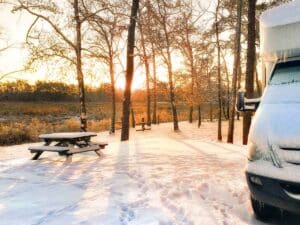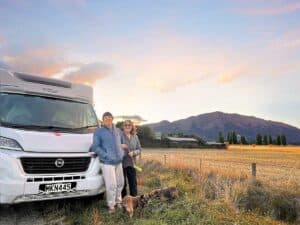The nearest I've come to igniting our RV was at Pohara Beach. I was sitting outside the motorhome in the sun waiting for the signal that my bread had toasted to perfection thinking that life was good. I closed my eyes. My mind wandered.
The next thing a fellow camper, an ample woman clad in a light blue fluffy dressing gown, burst through the bushes like an outsized puffball screeching, " Fire! Fire!" I turned and glimpsed our home and castle lazily expelling from every orifice curling billows of smoke.
To my rescuer's alarm I dashed into the eye of the fire and emerged holding aloft two wizened glowing embers from the toaster that forgot to pop.
I was reminded of that incident at the recent Camper Care Show, Christchurch, when the local fire brigade demonstrated the ins and (mostly) the outs of a caravan fire. They used ignited oil in a pan as the prop.
This is what I learnt and I thought it well worth passing on...
If your motorhome or caravan is on fire
1: Don't panic. Easier said than done! 2: Deprive the fire of oxygen. Use a pot-lid, a cutting board, a dampened tea towel, fire blanket, or whatever. If you lift the snuffer the fire will burst into life, again. 3: Turn off the source of heat if you can – at the stove or the gas bottle. 4: Leave the pot/frypan where it is. Attempt to remove it and you could trip or drop it. A fireman, fully clad in protective clobber then demonstrated what happens if you throw water on an oil fire. The explosion was terrifying. If ever I wanted to fry in hell that would be a simple way of going about it.Prevention
- Clean your stove grill and range hood to prevent a build-up of fats.
- Don't leave any cooking unattended.
- Don't have curtains near the stove and watch where you put tea towels.
- There are no special smoke alarms for RVs but some stockists have the new, small models with batteries that last 10 years.





